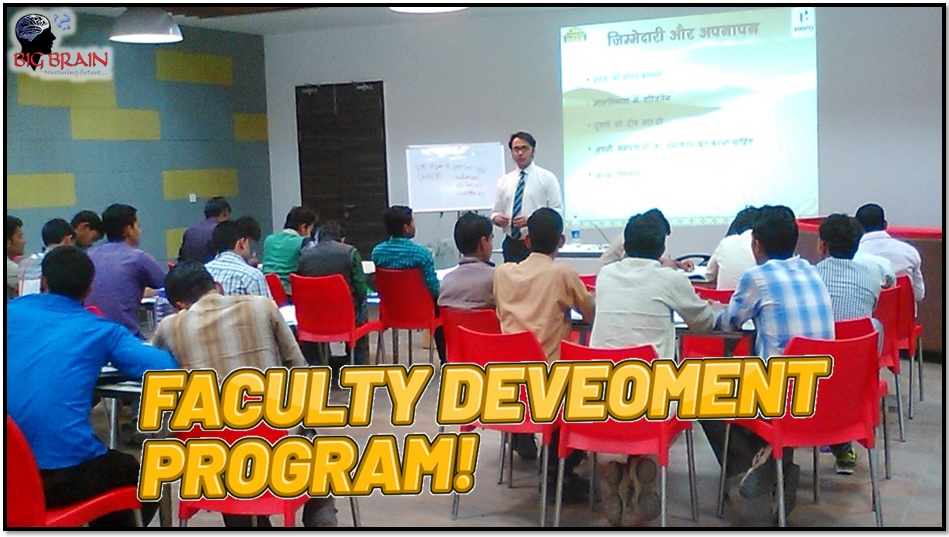In the realm of higher education, the quality of teaching plays a pivotal role in shaping students’ learning experiences and overall academic success. Faculty members are not just disseminators of knowledge; they are also mentors, researchers, and institutional leaders. To fulfill these diverse roles effectively in a rapidly changing academic environment, continuous learning and professional development are essential. This is where Faculty Development Programs (FDPs) come into play.
Faculty Development Programs are structured initiatives designed to improve the teaching skills, research capabilities, and overall professional competencies of educators. These programs provide an opportunity for faculty members to stay updated with the latest trends in pedagogy, curriculum design, educational technology, and subject-specific advancements. In a world where information and techniques evolve quickly, relying solely on initial academic qualifications is insufficient. FDPs ensure that educators remain dynamic, innovative, and equipped to meet contemporary challenges in education.
One of the primary goals of FDPs is to enhance teaching effectiveness. These programs expose faculty members to student-centered teaching methods, outcome-based education, and active learning strategies. They learn how to integrate technology into their classrooms, assess student performance more accurately, and create inclusive learning environments. As a result, students benefit from more engaging, relevant, and impactful instruction. In this way, FDPs directly contribute to improved student outcomes and satisfaction.
Another critical aspect of FDPs is the emphasis on research development. Many FDPs include training in research methodology, academic writing, grant proposal preparation, and publication ethics. This focus helps faculty produce high-quality research that contributes to the body of knowledge in their respective fields. It also elevates the institution’s academic standing and promotes a culture of inquiry and evidence-based practice.
Moreover, FDPs play a vital role in developing soft skills such as communication, leadership, time management, and teamwork. These skills are essential for faculty who take on administrative responsibilities or mentor students. Through FDPs, educators also gain insights into professional ethics, diversity, mental well-being, and the holistic development of students—ensuring a more balanced and sensitive academic environment.
In addition to individual benefits, FDPs have institutional and national significance. An institution that invests in faculty development fosters a culture of continuous improvement and academic excellence. Such institutions are better positioned to innovate, attract talent, and adapt to global educational trends. On a larger scale, FDPs contribute to national capacity building by improving the quality of education across the board, which in turn supports socio-economic development.
Lastly, in the post-pandemic era where digital learning has become mainstream, FDPs have proven to be more important than ever. They help educators transition from traditional teaching to blended or fully online modes by equipping them with the necessary digital skills and pedagogical understanding.
In conclusion, Faculty Development Programs are not optional add-ons but essential elements in the academic ecosystem. They empower educators, enrich student learning, and uplift institutions. A robust FDP culture leads to academic excellence, innovation, and meaningful contributions to society at large.
Beyond teaching and curriculum, FDPs foster professional growth and satisfaction among faculty members. Continuous learning and development contribute significantly to an individual’s sense of accomplishment and job satisfaction. FDPs offer avenues for faculty to expand their skill sets, explore new areas of research, and develop their leadership potential. This not only benefits the individual faculty member but also enhances the overall intellectual vibrancy of the institution. When faculty feel supported in their professional growth, they are more likely to be engaged, motivated, and committed to their institution.
Moreover, FDPs contribute to building a collaborative academic community. These programs often provide platforms for faculty members from different departments and disciplines to interact, share ideas, and learn from each other’s experiences. This cross-pollination of knowledge and perspectives can lead to innovative teaching practices, interdisciplinary research collaborations, and a stronger sense of collegiality within the institution. A supportive and collaborative environment is essential for fostering a culture of excellence and innovation.

